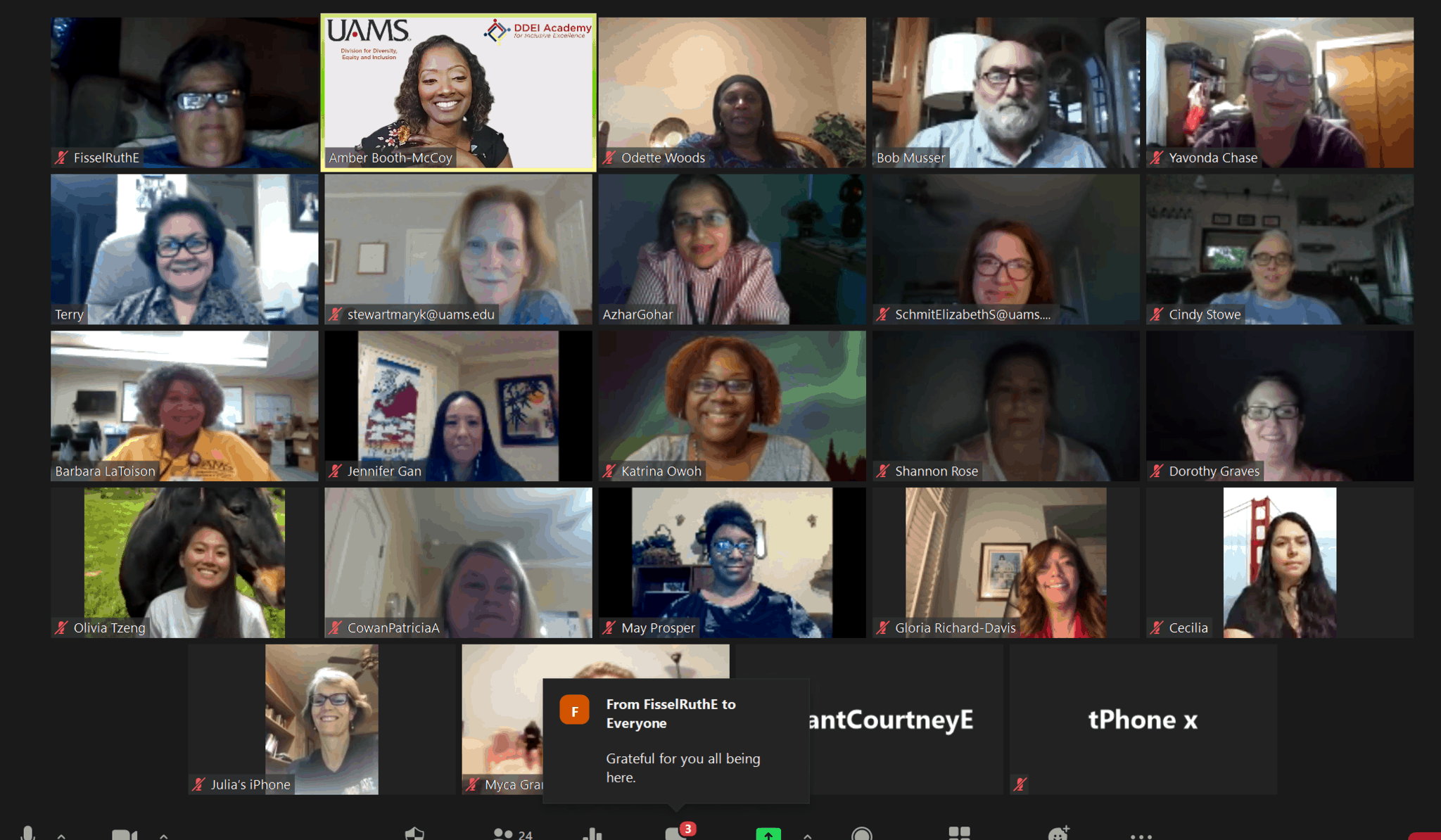View Larger Image

Students and employees attend an evening video conference hosted by Amber Booth-McCoy of the Division for Diversity, Equity and Inclusion.
Image by Amber Booth-McCoy
DDEI Hosts Virtual Healing, Discussion Chats
| In the wake of nationwide protests concerning systemic racism in American society, the UAMS Division for Diversity, Equity and Inclusion hosted a series of online safe spaces the week of June 8 for students and employees to discuss current events.
“This period of extended protest has stimulated a long overdue conversation,” said Brian Gittens, Ed.D., vice chancellor for diversity, equity and inclusion. “Dialogue is essential. To confront systemic racism, we need to name it. We need to call it out wherever we see it. And we want to empower and encourage our community in that conversation.”
The sessions were designed as an open, online safe space for employees and students to discuss current events and to promote healing conversations about race and race relations moderated by DDEI staff. They were organized as part of the DDEI Academy for Inclusive Excellence, with the goal of building a culturally humble, proficient and responsive workforce at UAMS.
“Thank you, thank you, thank you. I so deeply appreciate you and the rest of DDEI for hosting and leading these sessions. There was a lot to be learned and a lot to be healed, and I am so grateful those of us on these calls represent UAMS,” said participant Olivia Tzeng, via email.
“Thank you very much for this opportunity. I think you created a very special and important place,” responded Dorothy Graves, Ph.D., associate director of administration with the UAMS Winthrop P. Rockefeller Cancer Institute.
A series of five sessions were held over three days. Sessions were held at various times throughout the day to accommodate employees working outside of daytime office hours. Each session lasted about one and a half hours.
“We held similar listening sessions in recent years in response to people of color being killed by law enforcement,” said Amber Booth-McCoy, senior diversity specialist. “But the fact that I couldn’t tell you, off the top of my head, which incidents those were, whether Eric Garner, Michael Brown, or many, many others, should tell you all you need to know about why these conversations are so badly needed.”